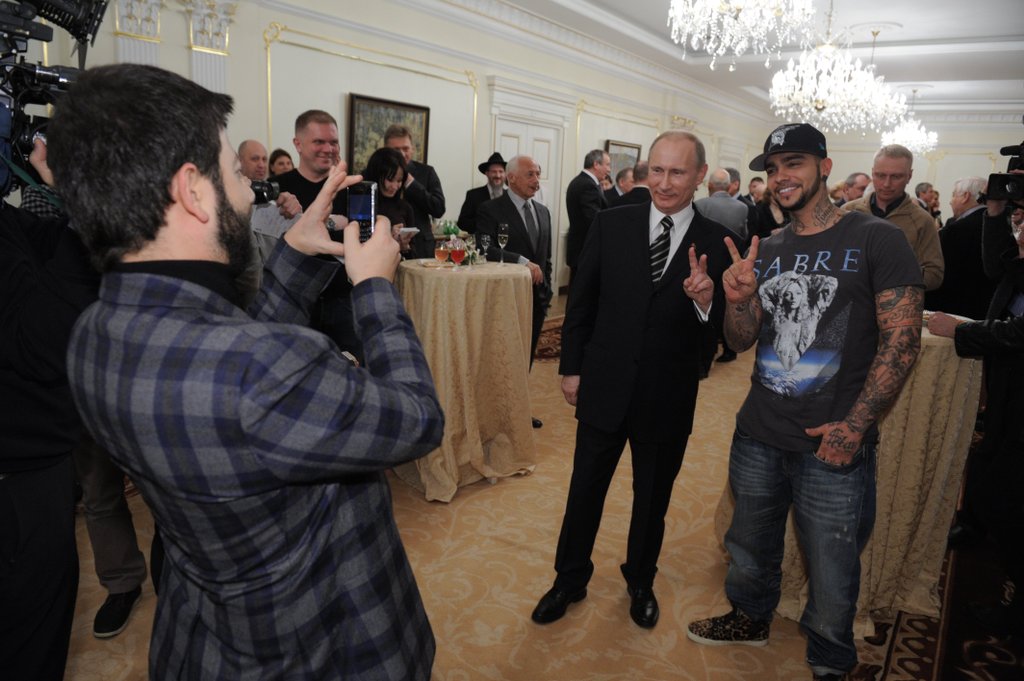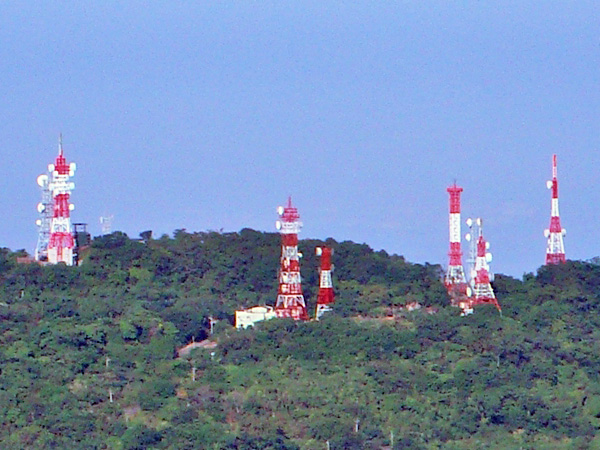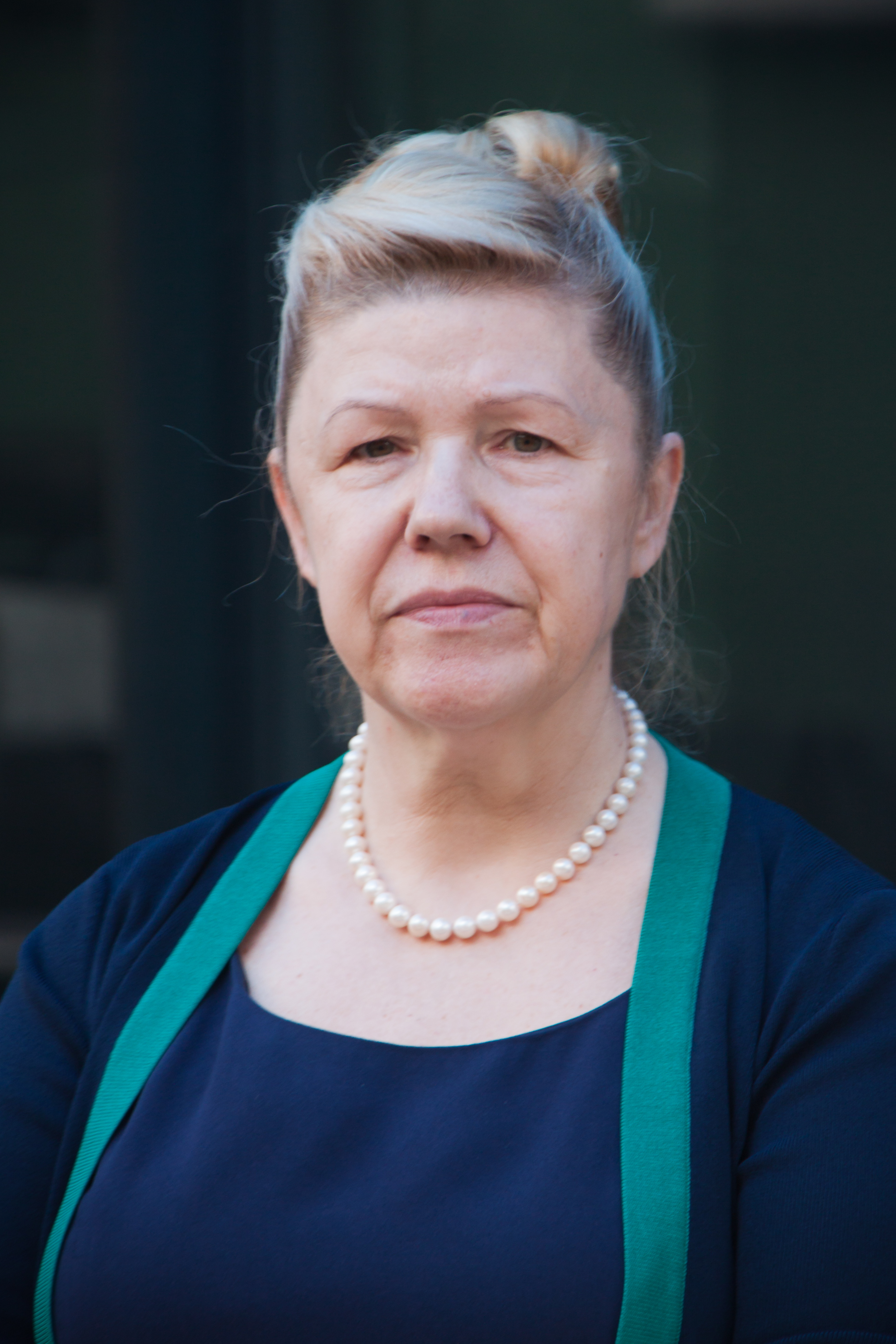|
Muz-TV
Muz-TV (russian: Муз-ТВ, from Музыкальное телевидение - Music Television) is a Russian music TV channel, broadcasting since 1996. It is largely modelled after western MTV and predates launching of MTV Russia in 1998. Muz-TV was founded by Sergey Lisovskiy. The general director of Muz-TV is Arman Davletarov. Today Muz-TV is owned by UTH Russia, which is, in turn, 49% owned by mtv. Muz-TV's format is Russian pop music videos, although international pop, hip-hop and contemporary R&B can be occasionally seen as well. There are charts for both local and international acts, voted via channel's website. Much like MTV, in the late 2000s Muz-TV became more an entertainment channel broadcasting reality shows, rather than a music channel. After the re-branding of 16 September 2012 "Muz-TV" has moved to a new frequency, changing the concept back to the "musical" On its old frequency, a new youth entertainment channel "U", which consists of programs previously aired ... [...More Info...] [...Related Items...] OR: [Wikipedia] [Google] [Baidu] |
MTV Russia
MTV Russia or MTV Россия (russian: МТВ Россия) was a Russian music and entertainment TV channel, which carried out its broadcasting from September 25, 1998 to May 31, 2013. On October 1, 2013, MTV Russia was relaunched as a satellite pay TV channel. In March 2022, Paramount Global announced that it intends to pause Russian operations. It did not comment on when the company plans return to the territory in the future. History Pre-launch (1991-1998) On March 8, 1991, MTV Europe began broadcasting on the territory of the USSR, which became the first Western 24-hour TV channel that could be received in the country.MTV в эфире уже четверть века // 01.08.2006 [...More Info...] [...Related Items...] OR: [Wikipedia] [Google] [Baidu] |
Timati
Timur Ildarovich Yunusov (born August 15, 1983), better known by his stage name Timati (russian: link=no, Ти́мати), is a Russian rapper, singer, record producer, actor, and entrepreneur. Biography Early life Timur Ildarovich Yunusov ( tt-Cyrl, Тимур Илдар улы Юнусов, russian: link=no, Тиму́р Ильда́рович Юну́сов) was born on August 15, 1983, in Moscow to an ethnically mixed familyKamenev, Marina (January 18, 2008).The word on the street". '' The St. Petersburg Times''. Retrieved 2009-06-14. of Tatar father Ildar Vakhitovich Yunusov and Jewish mother Simona Yakovlevna Yunusova (née Chernomorskaya), he also has a younger brother, Artyom. He grew up in a wealthy industrialist family, saying "I have very wealthy parents", but "I was never spoiled." He was raised mainly on Mira Avenue in Moscow. His current stage name "Timati" has stuck with him since he was young.Redeeva, Elena (December 25, 2006).Тимати: Я соверше ... [...More Info...] [...Related Items...] OR: [Wikipedia] [Google] [Baidu] |
Dima Bilan
Dima Nikolayevich Bilan (russian: Ди́ма Никола́евич Била́н; born Viktor Nikolayevich Belan, russian: Ви́ктор Никола́евич Бела́н, links=no; 24 December 1981) is a Russian singer, songwriter and actor. He represented Russia at the Eurovision Song Contest 2006 with "Never Let You Go (Dima Bilan song), Never Let You Go", finishing second, and he won the Eurovision Song Contest 2008, contest in 2008 in Belgrade, with the song "Believe (Dima Bilan song), Believe". He has had several Russian number one hit records. He is sometimes referred to as "Russia's Enrique Iglesias, Iglesias" due to his similarity to the Spanish singer. Early life Dima Bilan was born as Viktor Belan in Ust-Dzheguta in the autonomous republic Karachay-Cherkessia in a mixed family of Tatars, Tatar, Karachays, Karachay and Russian people, Russian heritage. Bilan's father was born in Kabardino-Balkaria and his mother in Tatarstan. After having briefly lived in Tatarstan ... [...More Info...] [...Related Items...] OR: [Wikipedia] [Google] [Baidu] |
Digital Terrestrial Television
Digital terrestrial television (DTTV or DTT, or DTTB with "broadcasting") is a technology for terrestrial television in which land-based (terrestrial) television stations broadcast television content by radio waves to televisions in consumers' residences in a digital format. DTTV is a major technological advance over the previous analog television, and has largely replaced analog which had been in common use since the middle of the 20th century. Test broadcasts began in 1998 with the changeover to DTTV (aka Analog Switchoff (ASO), or Digital Switchover (DSO)) beginning in 2006 and is now complete in many countries. The advantages of ''digital'' terrestrial television are similar to those obtained by digitising platforms such as cable TV, satellite, and telecommunications: more efficient use of limited radio spectrum bandwidth, provision of more television channels than analog, better quality images, and potentially lower operating costs for broadcasters (after the initial up ... [...More Info...] [...Related Items...] OR: [Wikipedia] [Google] [Baidu] |
Zveri
Zveri (''Beasts''; russian: Звери) is a Russian rock band. Biography Zveri was formed in mid 2002 by Roman Bilyk, the lead singer of the band, better known as Roma Zver'. The band was named after his nickname. He was soon joined by Maksim Leonov on guitars, Kostya Labezkiy on the bass, Kirill Antonenko on keyboards and Misha Kraev on the drums and the group began work on their debut album Golod (Hunger), released in February 2003. This album contained many of the group's best-known songs, such as ''Dozhdi-Pistolety'' (Rain-Guns), ''Dlya Tebya'' (For You) and ''Prosto Takaya Sil'naya Lyubov (Simply such a strong love). In March 2004, Zveri released their second album, entitled ''Rayony-Kvartaly'' (Regions-districts). It sold well and was accompanied by a tour of the country to promote it. ''Vsyo, chto kasaetsya'' (All, that is about) was released as a single from it and standout tracks include ''Yuzhnaya Noch (Southern Night) and ''Napitki Pokrepche'' (Stronger Drinks). In ... [...More Info...] [...Related Items...] OR: [Wikipedia] [Google] [Baidu] |
Egor Kreed
Egor Nikolayevich Bulatkin (russian: link=, Егор Николаевич Булаткин, born June 25, 1994), better known by his stage name Egor Kreed and KReeD, is a Russian rapper, singer and songwriter. He began his career under his stage name "KReeD" in 2014, but later changed it to "Egor Kreed". Early life Egor Kreed was born on June 25, 1994 in Penza. His father, Nikolai Bulatkin, works at a company that produces nuts while his older sister, Polina, lives and works in the United States as a singer and actress. To pursue his career, he moved to Moscow. He wanted to become a singer since the age of 11 when he heard 50 Cent's song "Candy Shop". After high school, he enrolled at the Academy of Music Gnesinon Kreed. He posted his first song titled "Lyubov v seti" on YouTube in July 2011. The video brought success and recognition from across Russia, racking up millions of views. In March 2012, Kreed won the "Star Vkontakte – Channel Five" in the category "Best Hip Hop Proje ... [...More Info...] [...Related Items...] OR: [Wikipedia] [Google] [Baidu] |
Izvestiya
''Izvestia'' ( rus, Известия, p=ɪzˈvʲesʲtʲɪjə, "The News") is a daily broadsheet newspaper in Russia. Founded in 1917, it was a newspaper of record in the Soviet Union until the Soviet Union's dissolution in 1991, and describes itself now as a "national newspaper" of Russia. The word ''izvestiya'' in Russian means "bring news" or "tidings", "herald" (an official messenger bringing news), derived from the verb ''izveshchat'' ("to inform", "to notify"). Origin The newspaper began as the ''News of the Petrograd Soviet of Workers Deputies'' on in Petrograd. Initially, the paper expressed Menshevik and Socialist-Revolutionary Party views. In August 1917, it took the title ''News of the Central Executive Committee of the Petrograd Soviet of Workers' and Soldiers' Deputies''. By October 1917 it became ''News of the Central Executive Committee of the Soviets of Working and Military Deputies'', and was eventually re-titled ''News of the Soviets of People's Deputies''. ... [...More Info...] [...Related Items...] OR: [Wikipedia] [Google] [Baidu] |
Kommersant
''Kommersant'' (russian: Коммерсантъ, , ''The Businessman'' or Commerce Man, often shortened to Ъ) is a nationally distributed daily newspaper published in Russia mostly devoted to politics and business. The TNS Media and NRS Russia certified July 2013 circulation of the daily was 120,000–130,000. It is owned by Alisher Usmanov. History In 1989, with the onset of press freedom in Russia, ''Kommersant'' was founded under the ownership of businessman and publicist Vladimir Yakovlev. The first issue was released in January 1990. It was modeled after Western business journalism. The newspaper's title is spelled in Russian with a terminal hard sign (ъ) – a letter that is silent at the end of a word in modern Russian, and was thus largely abolished by the post-revolution Russian spelling reform, in reference to a pre-Soviet newspaper of the same name active between 1909 and 1917. This is played up in the Kommersant logo, which features a script hard sign at the ... [...More Info...] [...Related Items...] OR: [Wikipedia] [Google] [Baidu] |
Russian Gay Propaganda Law
The Russian federal law "for the Purpose of Protecting Children from Information Advocating a Denial of Traditional Family Values", also referred to in English-language media as Russia's gay propaganda law or anti-gay law, is a bill that was unanimously approved by the State Duma on 11 June 2013 (with just one MP abstaining—Ilya Ponomarev), then unanimously approved by the Federation Council on 27 June 2013 and was signed into law by President Vladimir Putin on 30 June 2013. The Russian government's stated purpose for the law is to protect children from being exposed to homosexuality—condemn presenting homosexuality as being a norm in society—under the argument that it contradicts traditional family values. The statute amended the country's child protection law and the Code of the Russian Federation on Administrative Offenses, to prohibit the distribution of "propaganda of non-traditional sexual relationships" among minors. This definition includes materials that "raises i ... [...More Info...] [...Related Items...] OR: [Wikipedia] [Google] [Baidu] |
Morgenshtern
Alisher Tagirovich Morgenshtern, ba, Алишер Таһир улы Моргенштерн, Alisher Tahir uly Morgenshtern (born Alisher Tagirovich Valeyev, ba, links=no, Алишер Таһир улы Вәлиев, Alisher Tahir uly Väliev ; February 17, 1998), known mononymously as Morgenshtern (stylized in all caps), is a Russian rapper, record producer, and songwriter. He first gained fame in 2018 as the author of parodies of popular music artists of that time, publishing these videos on his YouTube channel. Biography Alisher was born on February 17, 1998 in Ufa; he changed his last name to Morgenshtern (Russian and Bashkir: Моргенштерн) as a teenager. His mother was a florist; his parents divorced and when Alisher turned 11, his father died of liver cirrhosis due to severe alcoholism. He has been interested in music since his childhood, and as a teenager he stated that he loved skateboarding. He released his first music video in 2010. He attended unive ... [...More Info...] [...Related Items...] OR: [Wikipedia] [Google] [Baidu] |
Aleksandr Revva
Aleksandr Vladimirovich Revva (russian: Александр Владимирович Ревва; uk, Олександр Володимирович Ревва, Oleksandr Volodymyrovych Revva; born 10 September 1974), better known by his stage name Arthur Pirozhkov (russian: Артур Владимирович Пирожков), is a Russian stand-up comedian, TV host and voice actor of Ukrainian origin. A former KVN player, in 2006 Revva became a "resident" of the Russian Comedy Club show on TNT. As of 2022, Revva is one of Russia's most popular pop stars, under his pseudonym 'Artur Pirozhkov'. Early life Aleksandr Revva was born in Donetsk, Ukrainian SSR. According to his own statement, announced in the program "Пока Все Дома" (While Everyone's Home), "Revva" is not his original surname. His family, who lived in Estonia and used the name Erwa, immigrated to Ukraine, where he changed his name to Revva. He graduated from the College of Industrial Automation, then the Fa ... [...More Info...] [...Related Items...] OR: [Wikipedia] [Google] [Baidu] |
Komsomolskaya Pravda
''Komsomolskaya Pravda'' (russian: link=no, Комсомольская правда; lit. "Komsomol Truth") is a daily Russian tabloid (newspaper format), tabloid newspaper, founded on 13 March 1925. History and profile During the Soviet era, ''Komsomolskaya Pravda'' was an all-union newspaper of the Soviet Union and an official organ of the Central Committee of the Komsomol. Established in accordance with a decision of the 13th Congress of the Russian Communist Party (b), it first appeared on 24 May 1925 in an edition of 31,000 copies. ''Komsomolskaya Pravda'' began as the official organ of the Komsomol, the youth wing of the Communist Party of the Soviet Union (CPSU). As such, it targeted the same 14 to 28 demographic as its parent organization, focusing initially on popular science and adventure articles while teaching the values of the CPSU. During this period, it was twice awarded the Order of Red Banner of Labour (in 1950 and 1957), and was also the recipient of the Or ... [...More Info...] [...Related Items...] OR: [Wikipedia] [Google] [Baidu] |





